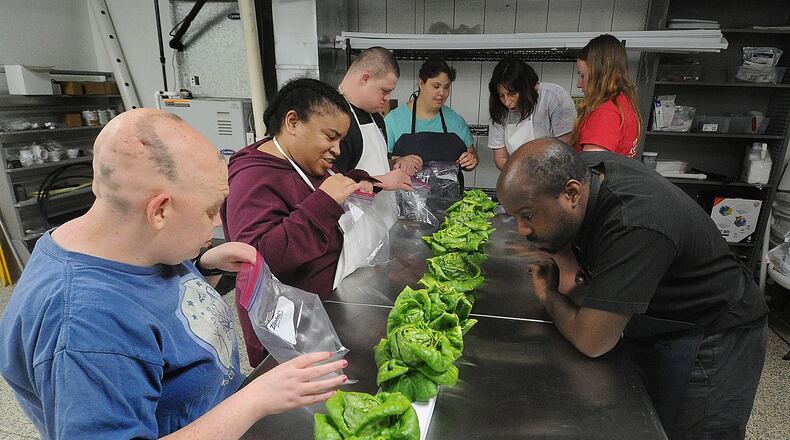Direct support professionals (DSPs) like Williamson are a rare breed. Toward Independence serves individuals in Greene County who have developmental disabilities. They’re one of several organizations in the Miami Valley who do so, and who have advocated for wage improvements for DSPs for years — improvements the state has granted in the most recently approved state budget.
But will wage improvements abate the “workforce crisis” surrounding these roles? Time will tell.
While the budget changes are welcome and applauded, local service providers said, wages for DSPs are still lagging behind market factors, with private industries outpaying local agencies.
In July of this year, Governor Mike DeWine signed House Bill 33, which invests $1.5 billion in support of Ohioans with Developmental Disabilities over the next two years. Wages for direct support roles increased from a cap of $13 an hour last year to around $15 in 2023, said Paul Quolke, president of the Greene County Board of Developmental Disabilities. With the new state budget, pay will be $17 starting in January next year.
“It’s progress, but it’s slow progress,” Quolke said.
The wage increases are a welcome step in the right direction, providers said.
“We are extremely thankful for what I think has been described as a historic funding increase. It’s been one of the largest funding increases in my lifetime working in the field, and I do believe it will have a positive effect,” said Mark Schlater, CEO of Toward Independence.
However, other tasks remain to increase the pool of qualified applicants for the jobs. 360 Total Care in Centerville, which provides home care services to individuals with disabilities and the elderly community, said they’ve seen an improvement in the number and quality of candidates, but still face stiff competition from remote jobs.
“Remote positions offer more money and health benefits without the strenuous hands-on requirements of DSPs,” said program director Latoya Stove. “This makes it challenging for us to recruit new direct support staff.”
DSPs have a high rate of turnover, many of them within 30-60 days, citing long hours and particularly pay, said Joe Harmon, COO of Toward Independence. For those who stay, it’s a labor of love, said Josh Ison, owner of Align Life Center in Beavercreek.
“Caregivers and DSPs who provide personal care, which includes changing, dressing, bathing and feeding, as well as companionship, transportation and participating in community activities, historically have been underpaid,” Ison said in a statement. “Yet their roles have never been more important as the developmental disabilities population continues to increase.”
Toward Independence works in eight counties in southwest Ohio and employs 350 people, about 300 of whom are direct support professionals in some capacity, including supervisors, program coordinators, and nurses. Many DSPs at Toward Independence are college students working toward degrees in medical or psychological studies, Harmon said. Others are empty-nesters looking for ways to give back.
DSPs must have at least a high school diploma and must undergo a background check. All DSPs at Toward Independence are CPR-certified. Their responsibilities include helping clients with day-to-day activities, including bathing, cooking, transportation, and developing life skills. In some cases, direct support professionals must handle medicine for clients.
It’s the handling of medication, and other situations where the DSP is responsible for another person’s well-being, that make the job worth more pay, Harmon said.
“We’re asking a lot from our direct support professionals, which is why we’re trying to fight for higher wages,” Harmon said. “Because it’s not a $16 an hour job. You can mess up on a burger or pizza and it’s okay. You mess up and you give somebody the wrong medication, or they trip and fall and you don’t respond appropriately? Lives are at stake.”
“I have people who have been working in this field for 10-15 years, and their high school kids are working at McDonald’s making more money than they are,” he added.
Additionally, many DSP jobs and similar professions fly under the radar with job-seekers, Schlater said. Large nursing homes, hospitals and assisted care centers are more visible workforce hubs than smaller agencies that work with clients who have disabilities.
For those who know about the role, it is an opportunity for those seeking service and health-centered careers to have a meaningful job.
“Seeing individuals come to us and witnessing their growth and independence within a month is truly inspiring,” Stove said. “Personally, I left my corporate job because I love the meaningful work we do for each and every one of our members. The impact we make on their lives cannot be replaced, and that’s what keeps me going.”
About the Author

